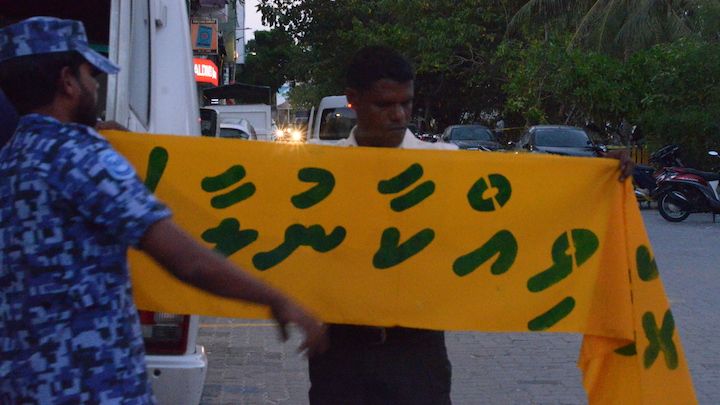Opposition announces protest against Faafu deal as police crackdown intensifies
After warning that “legal action” will be taken against “demeaning” activities during upcoming official visits, the police have raided the MDP’s meeting hall twice, painted over graffiti on Shaviyani Bileyfahi, and warned against putting up banners against the Faafu deal at the MDP’s campaign launch rally on Haa Alif Dhidhoo.

08 Mar 2017, 09:00
The Maldivian Democratic Party-led opposition coalition is gearing up for a mass demonstration in Malé on March 24 against the alleged sale of Faafu atoll to Saudi Arabia.
Shifa Mohamed, deputy leader of the Maldives United Opposition, told the press on Wednesday that the coalition has decided after consultations during the past two weeks “to do everything we can, domestically and internationally, against the sale of Faafu atoll or any part of it”.
The government has denied that Faafu atoll will be sold. Dismissing concerns over corruption, threats to sovereignty, and lack of transparency, President Abdulla Yameen said last week that details will be disclosed when the negotiations are complete. The US$10 billion project will be similar to “mixed development projects in the French Riviera” with high-end resorts, residential developments, and many airports, he said.
The MUO protest is likely to coincide with the official visit of Saudi King Salman bin Abdulaziz in mid-March.
Become a member
Get full access to our archive and personalise your experience.
Already a member?
Discussion
No comments yet. Be the first to share your thoughts!
No comments yet. Be the first to join the conversation!
Join the Conversation
Sign in to share your thoughts under an alias and take part in the discussion. Independent journalism thrives on open, respectful debate — your voice matters.




